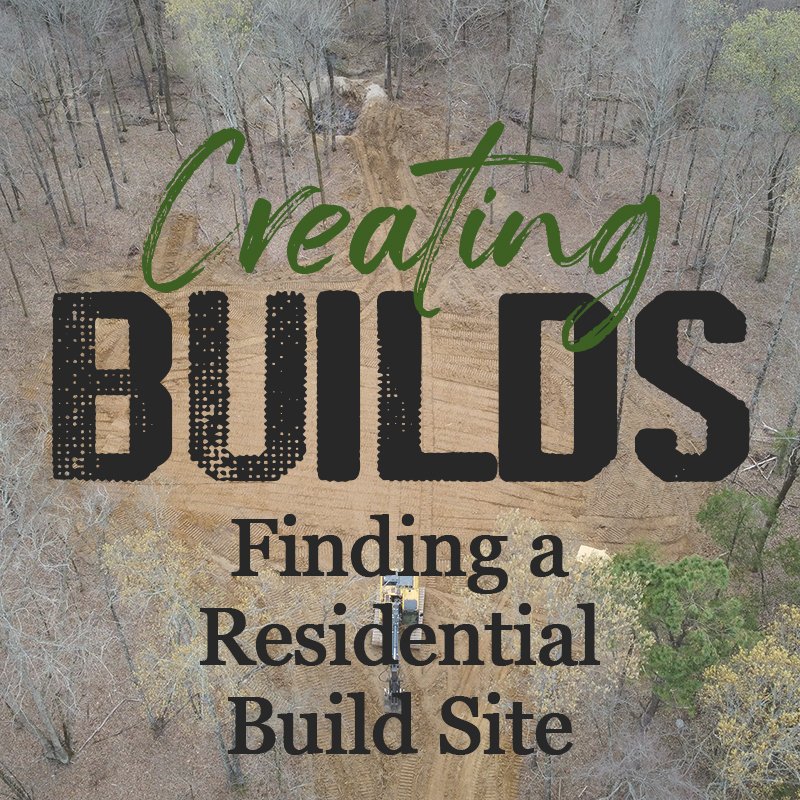
With your builder, architect, and agent onboard, it is time to find a place to build your dream home! Some books or blogs will tell you to begin by finding suitable land on which to build. While that is not necessarily bad advice, we think it makes more sense to select a builder first so he or she can help advise you on site selection. A good real estate agent should be able to advise you on selecting a proper build site, but having a builder involved will bring another perspective to the evaluation process.
When choosing a building site, there are many considerations. In addition to cost, it is important to consider the land’s zoning and building codes. Are there any restrictions on the property via the zoning, building codes, deed, or covenants that would limit your ability to build the house of your dreams? Are there any easements that would grant others the right to use your property? Any setbacks requiring you to steer clear of certain portions of the property?
Evaluate the road frontage. Is there sufficient frontage to access your build site? Will you need to install a new road to reach the build site? Are there ditch crossings, steams, trees, or other obstacles to navigate to reach the ideal site?
Are utilities available at your potential build site? If not readily available, how far away are they located? Does your utility provider charge a construction fee to run service to your location? If water and sewer are not available, is the land suitable for a septic system and a well? In most areas, the ground must percolate if you plan to install a septic system. Wells are easier to install in some parts of the country while other parts prove very challenging due to rocky substrates or the depth of the aquifer supplying water. Be sure to obtain a cost estimate for attaching to power, water, and/or gas utilities. If utilities are not available for all services, obtain quotes for installing a well and septic system on the property you are considering purchasing. How important is high speed internet to your lifestyle? If required, is there a nearby provider or a clear path to the sky for satellite service like Starlink?
While evaluating properties, pay attention to environmental factors. Determine if the property is in a flood plain. Evaluate restrictions that may be attached to the property such as wetlands or protected habitats. Consider house placement and its impact on views and natural surroundings. Is there sufficient room to build the floorplan you are considering? Ideally the building site will be located on a higher plain than surrounding lands, so water drains away from the house.
Consider proximity to schools, shopping, healthcare, and other amenities. Evaluate the safety and security of the area. Check crime rates and ensure emergency services are available. Look at future development plans for the area that might affect your quality of life or property value.
Confirm with your builder and/or architect that the lot you prefer will accommodate your new home. Some floorplans will not work on all lots. Sprawling single story homes may not fit on small lots – especially if you need room for a septic system. Pay attention to setbacks and easements when evaluating lots or land.
After collaborating with your real estate agent and builder to locate a property suitable for your new construction project, double-check all the things we discussed in this post to ensure you are covered. One final nugget – in the past we have included a “suitability” clause in our land purchase agreements essentially stating that if we uncover anything unsatisfactory with the property during our due diligence period that would prevent us from building or encumber our build with unforeseen expenses, we can walk away and recover our earnest money. A similar clause appropriate for your jurisdiction map help protect you from any unforeseen circumstances that may arise. A real estate agent or attorney can advise on you proper verbiage for your jurisdiction.
Best of luck finding your new home site! Be sure to check out our other post on financing your new build.
